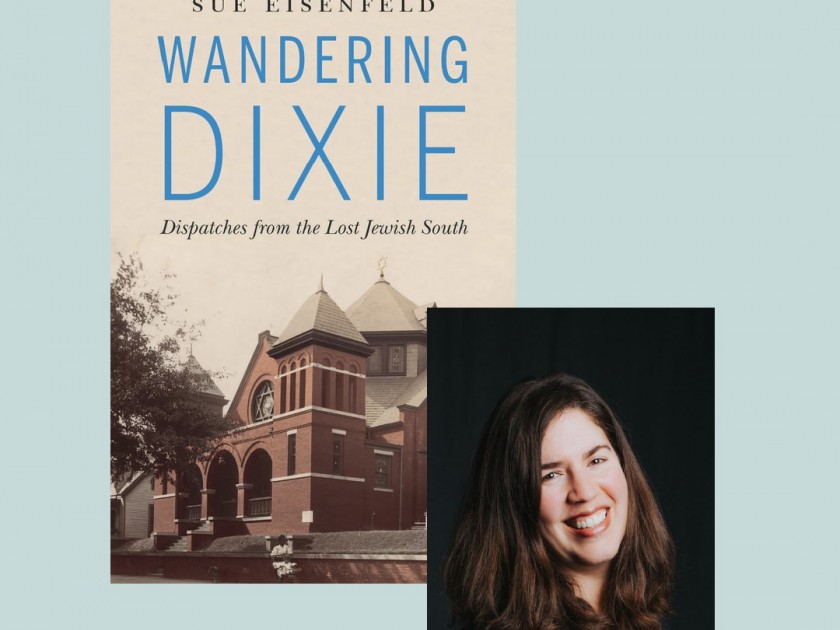
We spoke to Sue Eisenfeld, author of Wandering Dixie: Dispatches from the Lost Jewish South, on June 17th as part of our JBC Authors at the Table series — you can watch the thirty minute chat here. Check out below some questions we didn’t have time for and keep the conversation going. See the whole lineup for JBC Authors at the Table.
What caused the demise of the Southern Jewish communities? Was there much intermarriage during that time period?
Many of these small places saw their population dwindle in the last few generations as people got better jobs in bigger cities, or decided that there were more opportunities or a better lifestyle elsewhere. That trend might have started in some places in the early 1900s, but maybe a few decades later in other places. I have not read that intermarriage per se was the cause of small-towns in the South losing their Jewish population, but it does seem that that’s been a trend across America in general.
What is the synagogue in the cover of your book?
It is Temple Mishkan Israel in Selma, Alabama.
Does anyone here have an issue with the title? As a Jewish person who lives in Savannah, I find that it implies that there is not a thriving Jewish community in the South today. Some small Jewish towns have lost populations, true. But certainly not all. And there are lost Jewish communities elsewhere — Prairie states, etc.
True, there are still lots of strong Jewish communities in the South, especially in the larger towns and cities. And there are dwindling communities in the North and elsewhere. I hope in reading the book you’ll find that I do not suggest that all southern Jewish communities are “lost” or that there aren’t lost places elsewhere.
Reform Judaism has its roots in the American South in Charleston, South Carolina. Can you unpack your findings about the history of the Jewish community there and the construction of the KKBE Greek Revival Reform temple?
I have two chapters in the book about Charleston. I hope you’ll read the book! It was my culminating big southern trip!
Regarding research, who did you look to to supplement your travels and what did you find useful or not useful in your research?
I combined on-the-ground experiences and observations with interviews with people on site — descendants of Jewish slave owners, descendants of Jewish Confederates, southern Jews who lived through the Civil Rights Era, and other individuals. As well as interviews with others on the phone, as well as primary and secondary research: some archives, some books, some maps, etc. One of the places I enjoyed visiting the most was the Jewish Heritage Collection at the College of Charleston. I also learned a lot by traveling with the Southern Jewish Historical Society. The Institute of Southern Jewish Life (ISJL) was also another incredible resource.